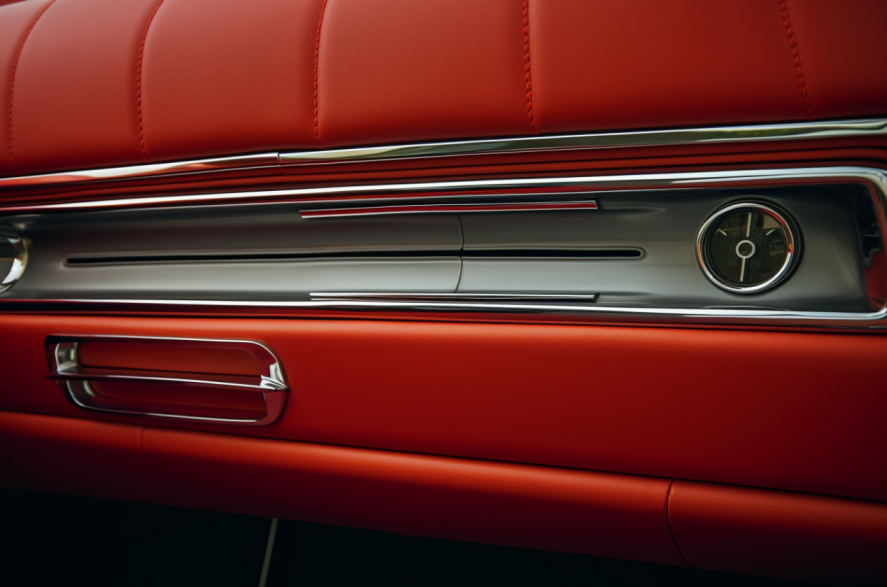Blog
We regularly update articles related to the prototyping and manufacturing industry. You’re welcome to check our previous blogs and subscribe to our newsletter.
How Do Advanced Machining Solutions Enhance Precision in Car Door Panels Production?
Car door panels play a critical role in the automotive industry, serving as essential components in both the interior and exterior design of vehicles. They contribute to the overall aesthetics, safety, and functionality of a vehicle. Precision machining is pivotal in producing high-quality door panels, as it ensures that the panels fit seamlessly and function effectively. Recent advancements in machining technology have significantly improved the production process, allowing manufacturers to achieve greater precision and efficiency.
Current Industry Status
1.1 The Demands of the Automotive Industry
The automotive industry demands high-quality door panels that not only meet stringent safety and quality standards but also enhance the aesthetic appeal of vehicles. This demand requires manufacturers to continuously innovate and improve their machining processes to produce door panels that are visually appealing, durable, and safe.
1.2 Role of Door Panels in Vehicles
Car door panels are crucial for vehicle aesthetics, providing a smooth and attractive finish to the interior and exterior. They also play a significant role in safety by contributing to the structural integrity of the vehicle and accommodating features such as airbags and electronic systems.
1.3 Challenges Faced by Manufacturers
Manufacturers face several challenges in producing high-quality car door panels, including managing the precision and quality requirements, handling various materials, and maintaining cost and time efficiency. Additionally, there is a growing need for sustainable and eco-friendly manufacturing practices in the industry.
Challenges in Car Door Panel Machining
2.1 Precision and Quality Requirements
Producing car door panels requires precise and accurate machining to ensure that the panels fit perfectly within the vehicle’s structure. This precision is essential for achieving seamless integration with other vehicle components and providing a high-quality finish.
a. Dimensional Accuracy: Door panels must be manufactured to exact specifications to fit within tight tolerances. Deviations can affect the vehicle’s appearance and function.
b. Surface Quality: High-quality finishes are important for both aesthetic and functional purposes. Any imperfections can detract from the vehicle’s overall appeal.
c. Consistency: Manufacturers must produce door panels consistently across large production runs to maintain quality standards.
2.2 Material Diversity
Car door panels can be made from a variety of materials, including metal, plastic, and composite. Handling these different materials requires manufacturers to adapt their machining processes to achieve the desired results.
a. Metal Machining: Metals require specific machining techniques to achieve precise cuts and finishes. This process often involves laser cutting or stamping.
b. This process allows for intricate designs and complex shapes.
c. Composite Materials: The use of composite materials is increasing due to their lightweight and durable properties. Machining these materials requires specialized techniques.
Time and Cost Constraints
Manufacturers must balance the need for high-quality door panels with time and cost efficiency. Meeting tight production schedules and budget constraints while maintaining quality is a major challenge.
a. Efficient Machining: Advancements in machining technology have enabled faster production without sacrificing quality.
b. Cost-Effective Processes: Manufacturers must continually optimize their processes to reduce costs while maintaining high-quality standards.
c. Meeting Delivery Deadlines: Staying on schedule is crucial for maintaining customer satisfaction and meeting industry demands.
Sustainable and Eco-Friendly Practices
Sustainability has become a key concern in the automotive industry. Manufacturers are increasingly adopting eco-friendly practices in their production processes.
a. Material Recycling: Recycling materials used in door panel production helps reduce waste and lower environmental impact.
b. Energy Efficiency: Utilizing energy-efficient machinery and processes can reduce carbon emissions and operational costs.
c. Green Manufacturing: Manufacturers like Louis Machine strive to implement green practices, such as using renewable energy sources and reducing water consumption.
Advanced Machining Techniques
5.1 CNC Machining and Automation
One of the key advancements in car door panel manufacturing is the integration of CNC machining and automated processes. CNC (Computer Numerical Control) machining allows manufacturers like Louis Machine to achieve precise and consistent results in crafting door panels. Automated processes streamline production, enabling manufacturers to handle higher volumes of work efficiently.

5.2 Precision Cutting Tools
Advanced cutting tools are another aspect of modern machining that has transformed the production of car door panels. These tools enable manufacturers to achieve improved precision and speed in the cutting and shaping of materials, reducing material waste and enhancing overall production quality.
Case Studies in the Automotive Industry
6.1 Successful Implementations
Several case studies demonstrate the success of innovative machining solutions in the automotive industry. For example, one manufacturer implemented a combination of CNC machining and precision cutting tools to produce door panels with complex designs and intricate details. This approach not only improved the quality of the final product but also reduced the time required for production.
6.2 Customization and Flexibility
Another successful implementation involved a manufacturer that utilized advanced machining techniques to handle various materials and designs. This flexibility allowed the company to customize door panels according to client specifications, expanding their market reach and enhancing customer satisfaction.
Emerging Trends and Technologies
7.1 Lightweight Materials and Advanced Composites
The automotive industry is experiencing a shift towards using lightweight materials and advanced composites in car door panel manufacturing. These materials offer benefits such as improved fuel efficiency and reduced emissions, aligning with sustainability goals.
7.2 Industry 4.0 and Data Analytics
The integration of Industry 4.0 principles in manufacturing processes has enabled manufacturers to optimize production through data analytics and IoT (Internet of Things). Real-time monitoring and predictive maintenance help improve efficiency and reduce downtime, leading to cost savings and enhanced production quality.
7.3 Sustainable Manufacturing Practices
Manufacturers like Louis Machine are increasingly adopting sustainable manufacturing practices. This includes using eco-friendly materials, optimizing resource usage, and minimizing waste throughout the production process. Such practices not only contribute to environmental conservation but also improve the overall sustainability of door panel production.
Advantages of Advanced Machining Solutions
8.1 Enhanced Precision and Quality
Advanced machining solutions offer increased precision and quality in door panel production. CNC machining ensures that each component is crafted with exact specifications, reducing the likelihood of defects and enhancing overall product quality.

8.2 Reduced Production Time and Cost
Automation and efficient machining processes enable manufacturers to reduce production time and costs. By streamlining operations and minimizing manual labor, manufacturers can produce more door panels in less time while maintaining consistent quality.
8.3 Flexibility in Material Handling and Design
The ability to handle different materials and designs is a significant advantage of advanced machining solutions. Manufacturers can seamlessly switch between materials and customize designs to meet diverse client requirements.
8.4 Sustainable Production Techniques
Through optimized production techniques, manufacturers can improve sustainability and reduce waste. This includes recycling materials, using energy-efficient machinery, and implementing lean manufacturing principles.
8.5 Compliance with Industry Standards
Advanced machining solutions ensure better alignment with industry standards and regulations for vehicle safety and performance. Precise manufacturing processes enable manufacturers to meet stringent quality and safety requirements.
Conclusion
In summary, the production of car door panels requires a careful balance between precision machining, material diversity, and cost-effective processes. Manufacturers like Louis Machine play a vital role in meeting industry demands while adopting sustainable practices to minimize their environmental impact. As technology continues to advance, the future of car door panel machining looks promising, with the potential for even greater innovation and efficiency.





